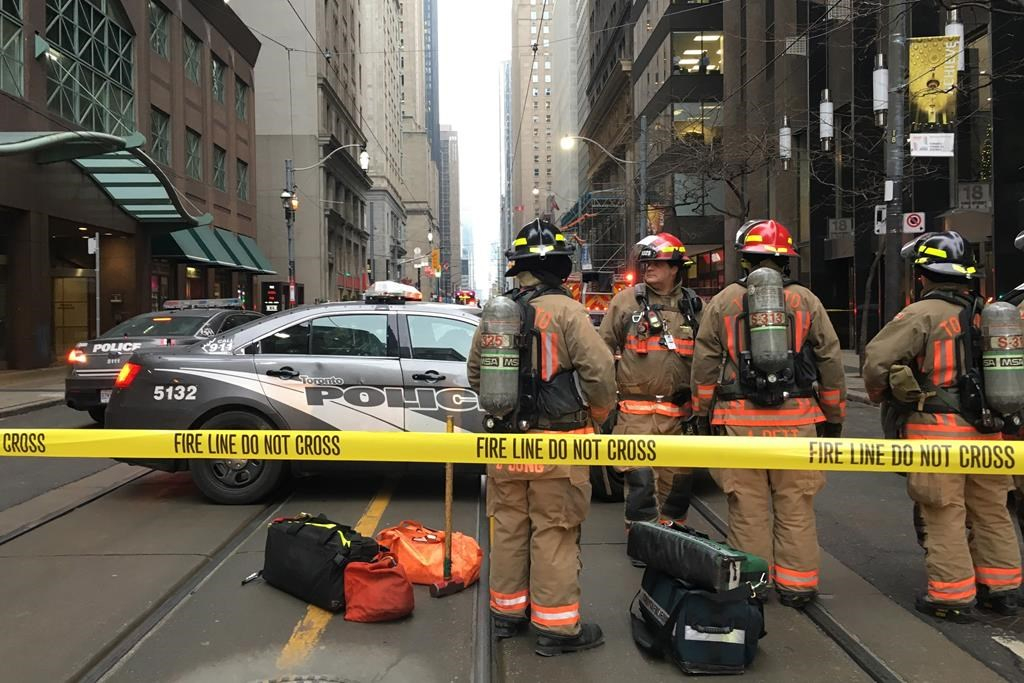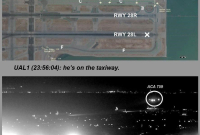Thank you for helping us meet our fundraising goal!
Police forces in cities across Canada investigated multiple bomb threats on Thursday as authorities in the U.S. said similar threats sent to dozens of locations appeared to be a hoax.
Police departments in Toronto, Montreal, Calgary, Ottawa and Winnipeg, as well as RCMP detachments in B.C. and Manitoba, were investigating multiple threats.
One busy subway station in downtown Toronto was briefly evacuated Thursday afternoon due to a threat received in the area, but King Station was up and running again within hours.
A spokesman for Toronto police said it wasn't clear whether that threat, or any of "at least 10" received across the city, were related to those in other locations.
"The problem with that thinking is — if you believe they're related and this is nonsense — then your investigation suffers and your response suffers," Const. David Hopkinson said in an interview.
"We know ... that a number of other cities have received bomb threats. To us, that doesn't matter — we will investigate them seriously every time."
In Montreal, police responded to five emailed bomb threats received by local businesses Thursday afternoon.
Agent Jean-Pierre Brabant, a police spokesman, said the emails were the same as those received elsewhere in North America. They warned in imperfect English that unless $20,000 in Bitcoin was paid, a bomb would go off.
"Each call was taken very seriously," Brabant said. "We sent police officers to the site, they searched the premises. We found nothing suspicious. There were no explosives."
It was not necessary to call in the bomb squad, he added.
He said there was nothing connecting the companies, which were spread across the city.
"It appears to be a hoax, but we are not taking any chances," Brabant said.
The Calgary Police Service said in a statement that the threats received there were "not believed to be credible," but officers were taking precautions nonetheless.
"The threats are being received by email and they have been sent to various locations throughout the morning," its statement reads.
"Similar threats are being received across the continent and are believed to be connected."
Police in Edmonton issued a similar statement, saying they had received several reports of bomb threats emailed to local businesses.
The RCMP said it was aware of email threats made across the Canada, and urged anyone who received one to exercise caution.
"If you have been the recipient of one of these e-mail threats, do not respond to the Bitcoin demand," the force said in a statement.
"Remain alert and immediately contact your local police."
South of the border, a wave of bomb threats emailed to hundreds of schools, businesses and government buildings triggered searches, evacuations and fear. However, there were no signs of explosives, and authorities said the scare appeared to be a crude extortion attempt.
Law enforcement agencies across the U.S. dismissed the threats, saying they were meant to cause disruption and compel recipients into sending money and were not considered credible.
Some of the emails had the subject line: "Think Twice." They were sent from a spoofed email address. The sender claimed to have had an associate plant a small bomb in the recipient's building and that the only way to stop him from setting it off was by making an online payment in Bitcoin.
Penn State University notified students about threats to a half-dozen buildings and an airport on its main campus. In an update, the school said the threat appeared to be part of a "national hoax."
— With files from The Associated Press





Comments